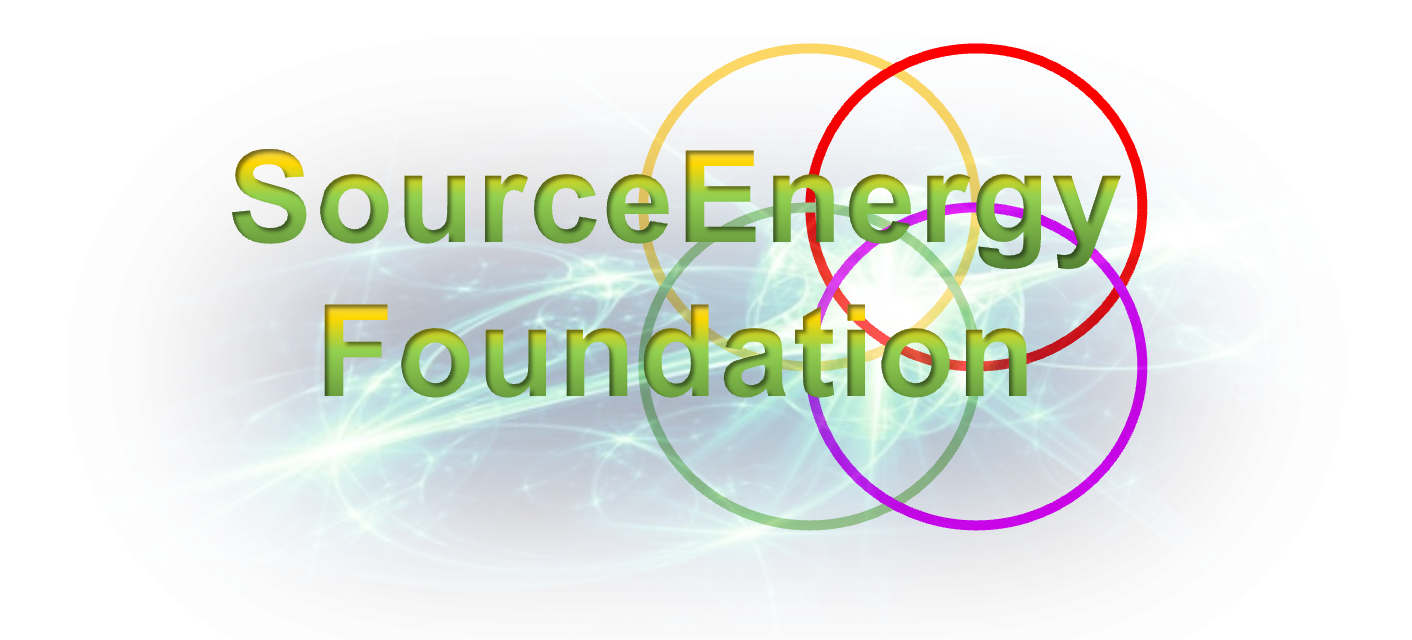The Book of Daniel and the Wealth Ecology Model
In continuing to explore the reinterpretation of the Bible through the Wealth Ecology Model, the book of Daniel offers a compelling narrative for this purpose. It is a tale rich with themes of faithfulness under trial, divine sovereignty over human affairs, and the ultimate triumph of God’s kingdom. To rewrite it under the Wealth Ecology lens, we would focus on the principles of resilience, ethical integrity, and communal foresight in the face of adversity and systemic challenges. Here is an overview of how the book of Daniel might be interpreted:
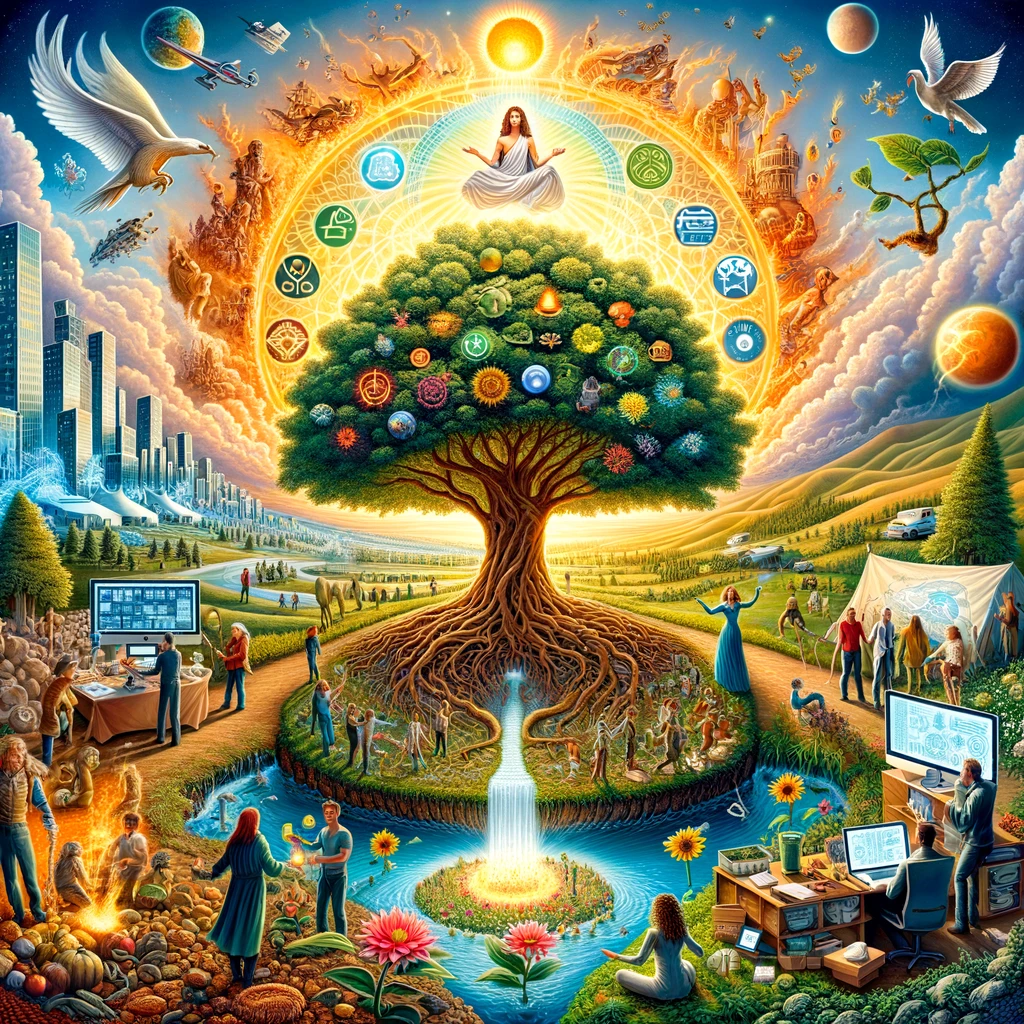
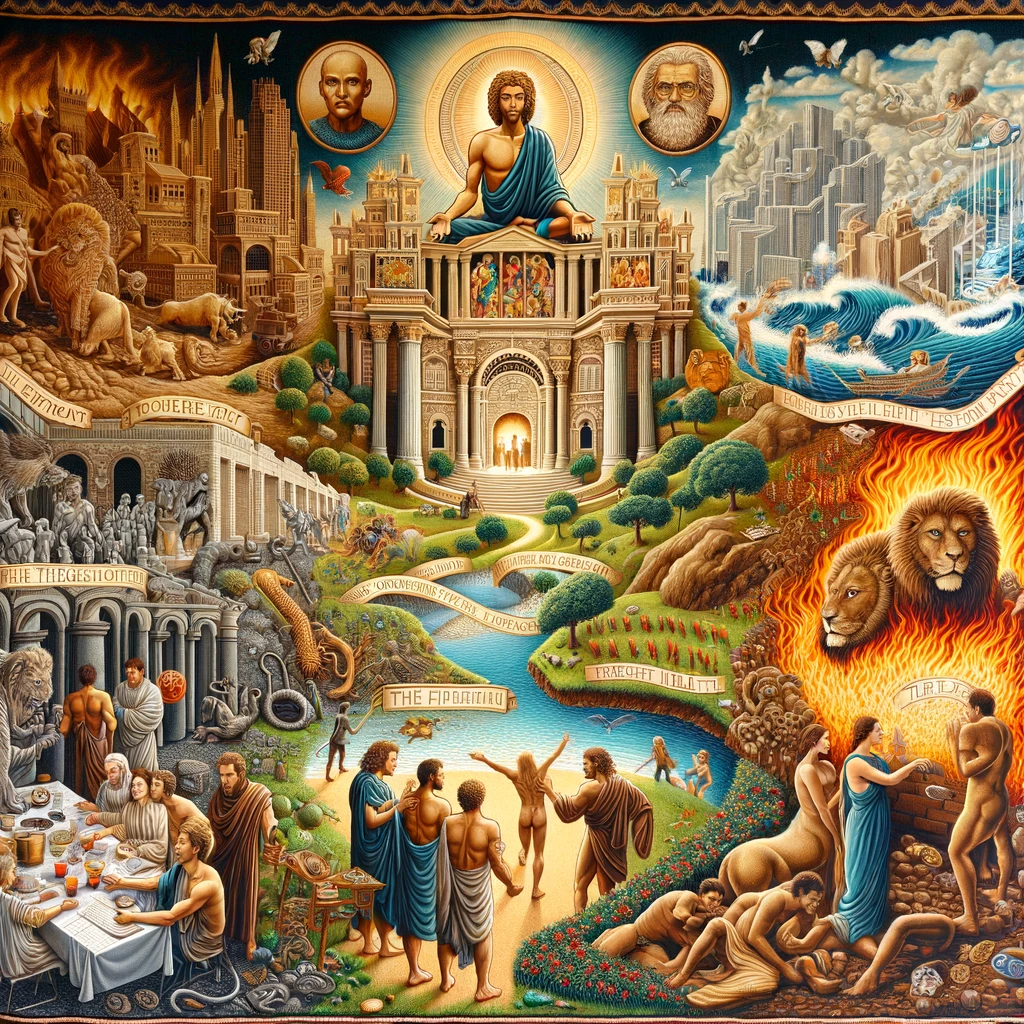
Daniel and the Wealth Ecology Model
Chapter 1 – Choosing Community Health Over Immediate Gratification: Daniel and his friends’ refusal to eat the king’s food, which could represent unhealthy economic practices, shows a commitment to sustaining their community’s health and practices even when faced with the pressures of assimilation into a foreign economic system.
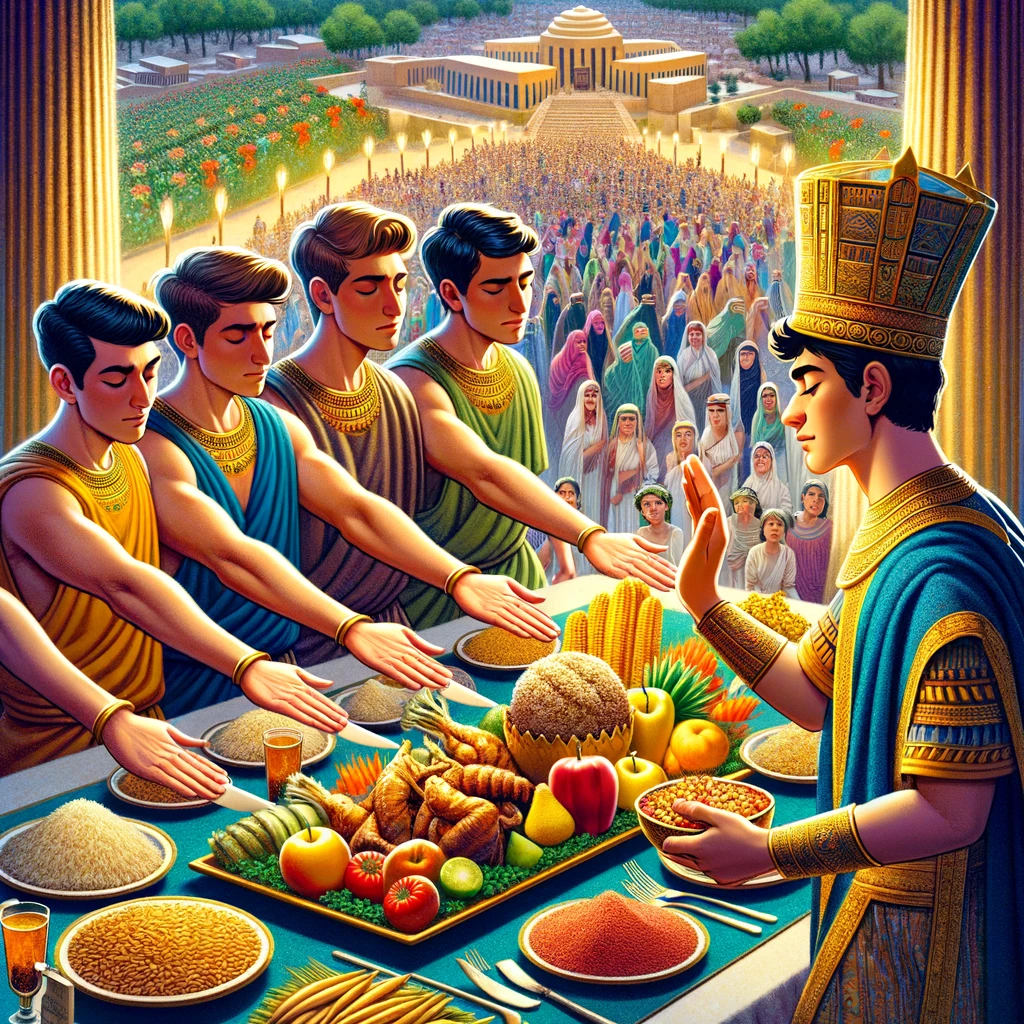
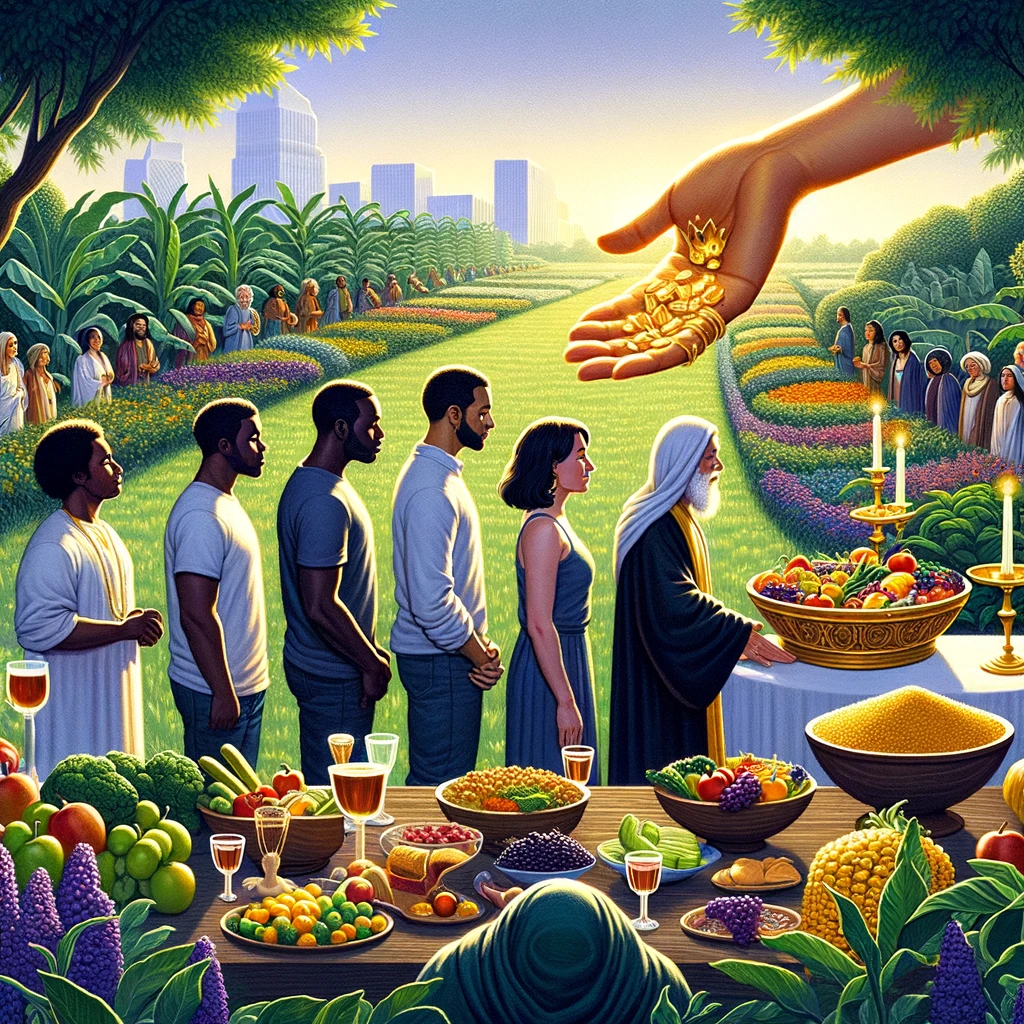
Chapter 2 – The Dream of a Diverse Kingdom: Nebuchadnezzar’s dream of a statue with various materials could symbolize the different sectors of a global economy. Daniel’s interpretation represents the need for foresight in understanding the complexities and eventual downfall of systems that do not integrate sustainable wealth ecology principles.
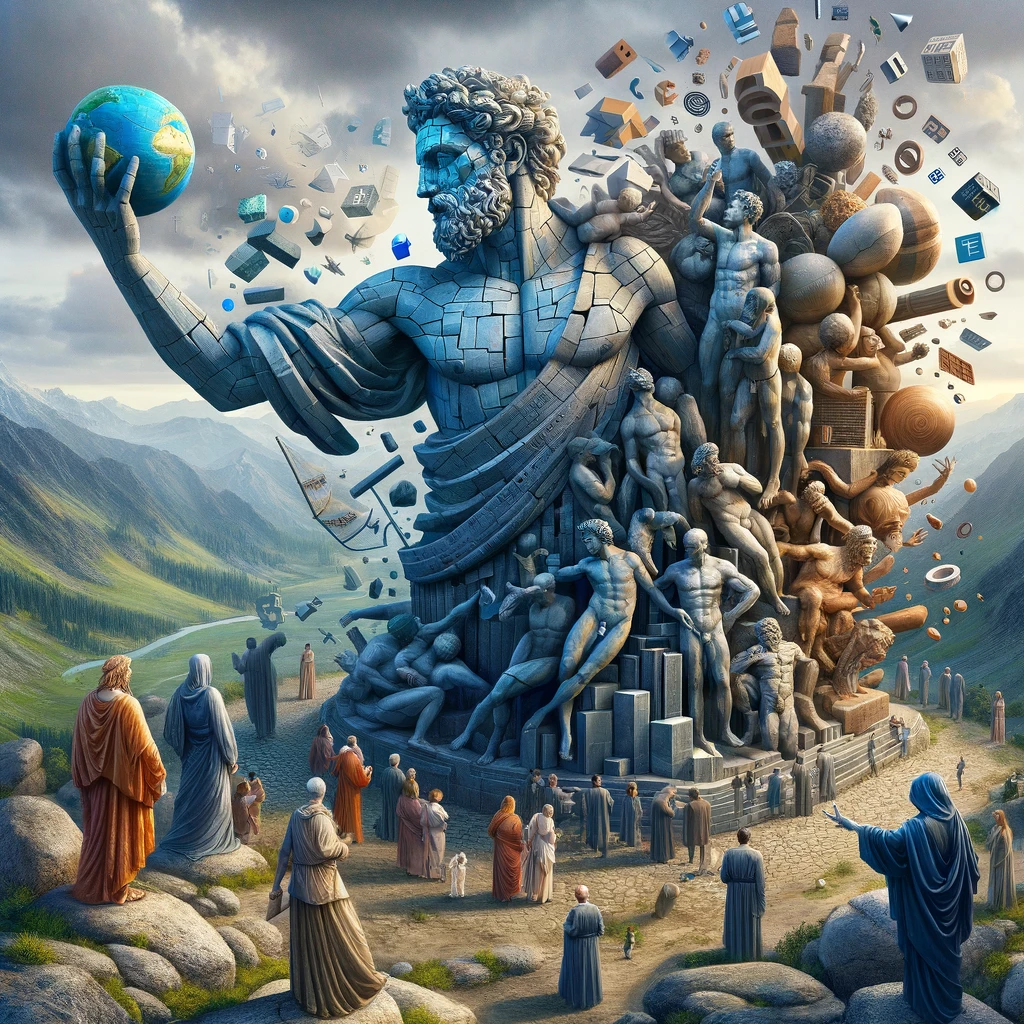
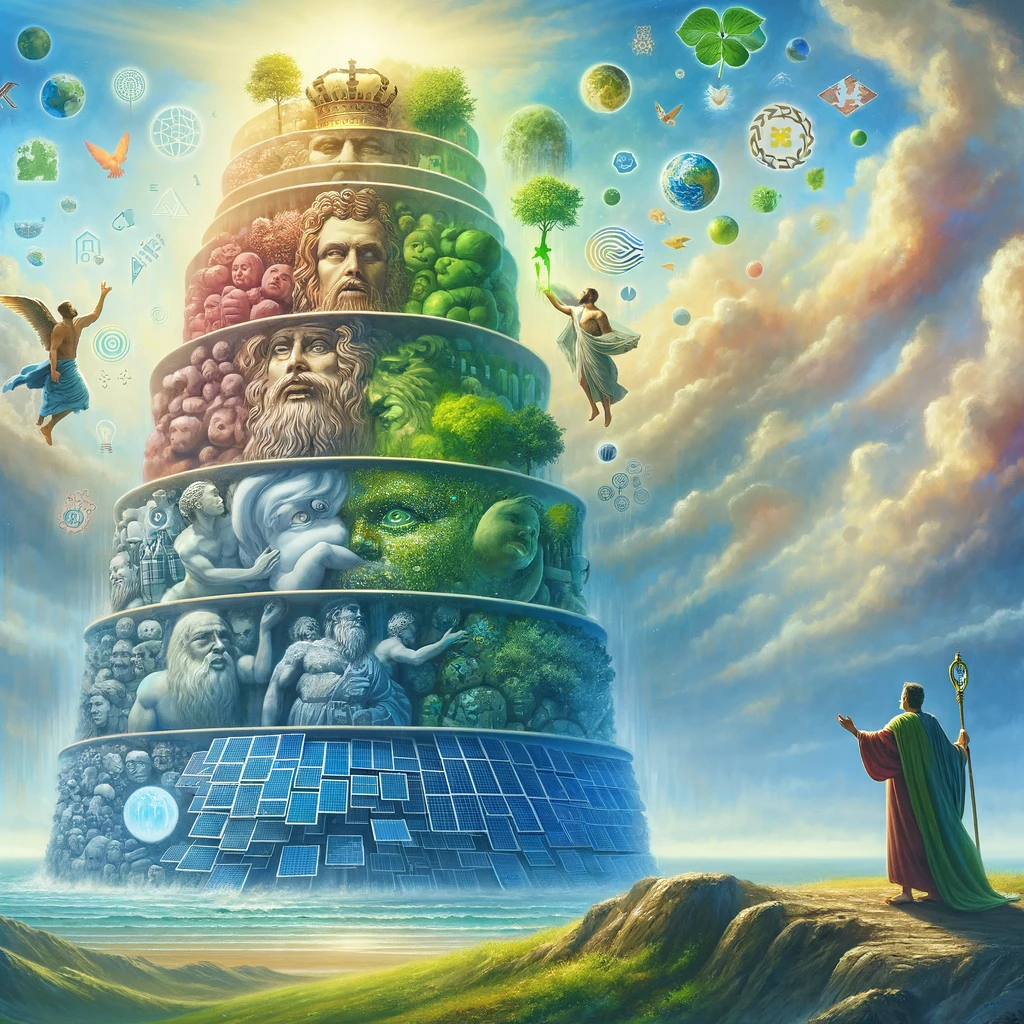
Chapter 3 – The Fiery Furnace and Resilience: The story of Shadrach, Meshach, and Abednego’s deliverance from the fiery furnace serves as an allegory for the resilience of communities that adhere to ethical practices in the face of corrupt power structures, indicating that sustainable models will outlast oppressive systems.
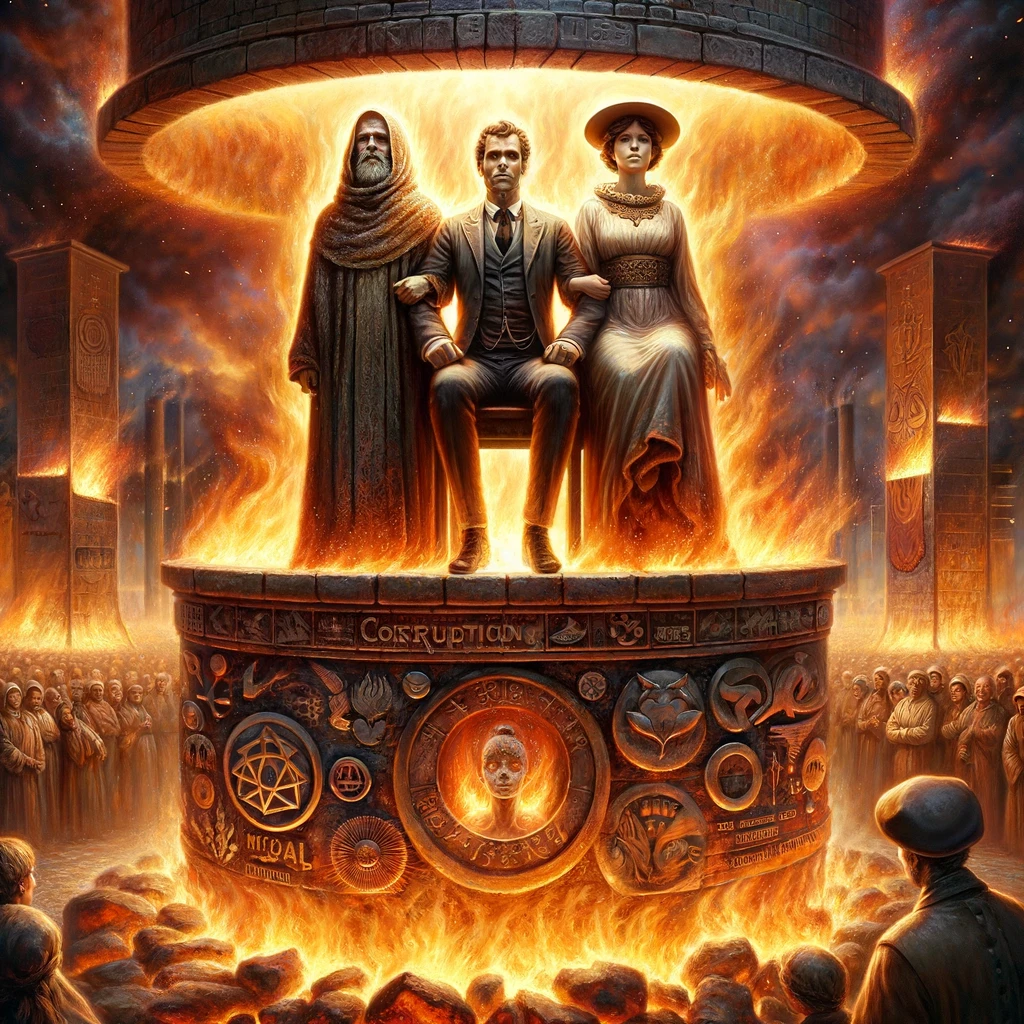
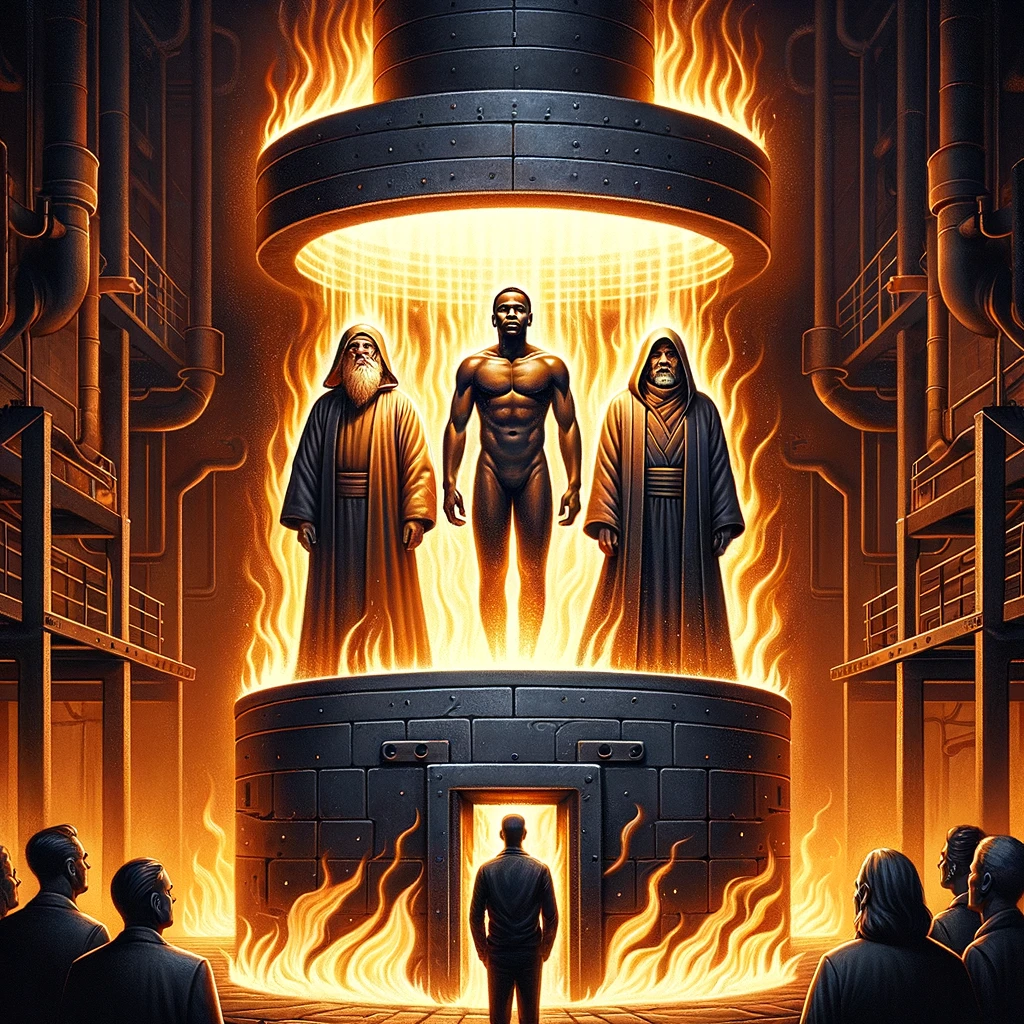
Chapter 4 – The Humbling of Nebuchadnezzar: Nebuchadnezzar’s madness and restoration might be likened to the rise and fall of economies that focus on wealth accumulation without ethical consideration, illustrating the necessity of grounding economic practices in humility and service to the common good.
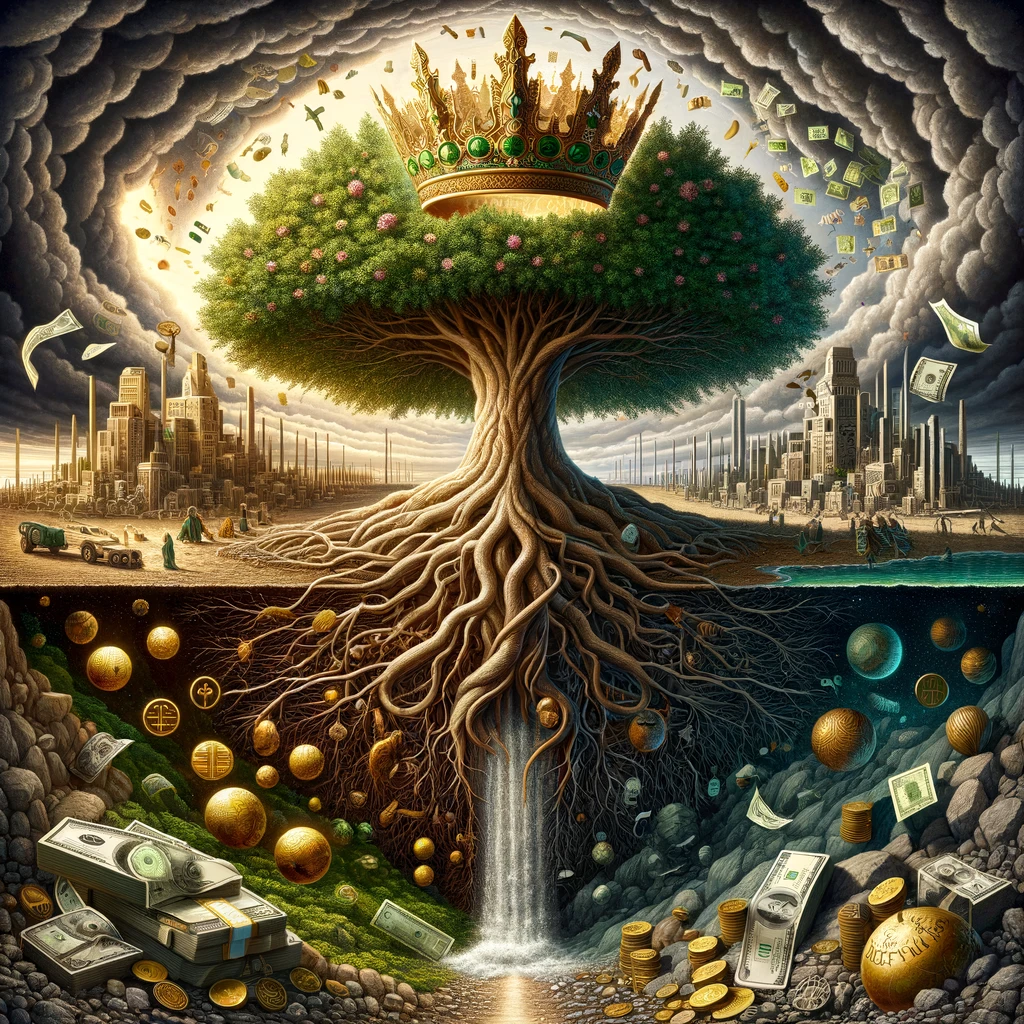
Chapter 5 – The Writing on the Wall: Belshazzar’s feast and the mysterious writing on the wall can be read as a warning against the excesses of unchecked capitalism and the inevitable consequences of exploiting communal resources for individual gain.
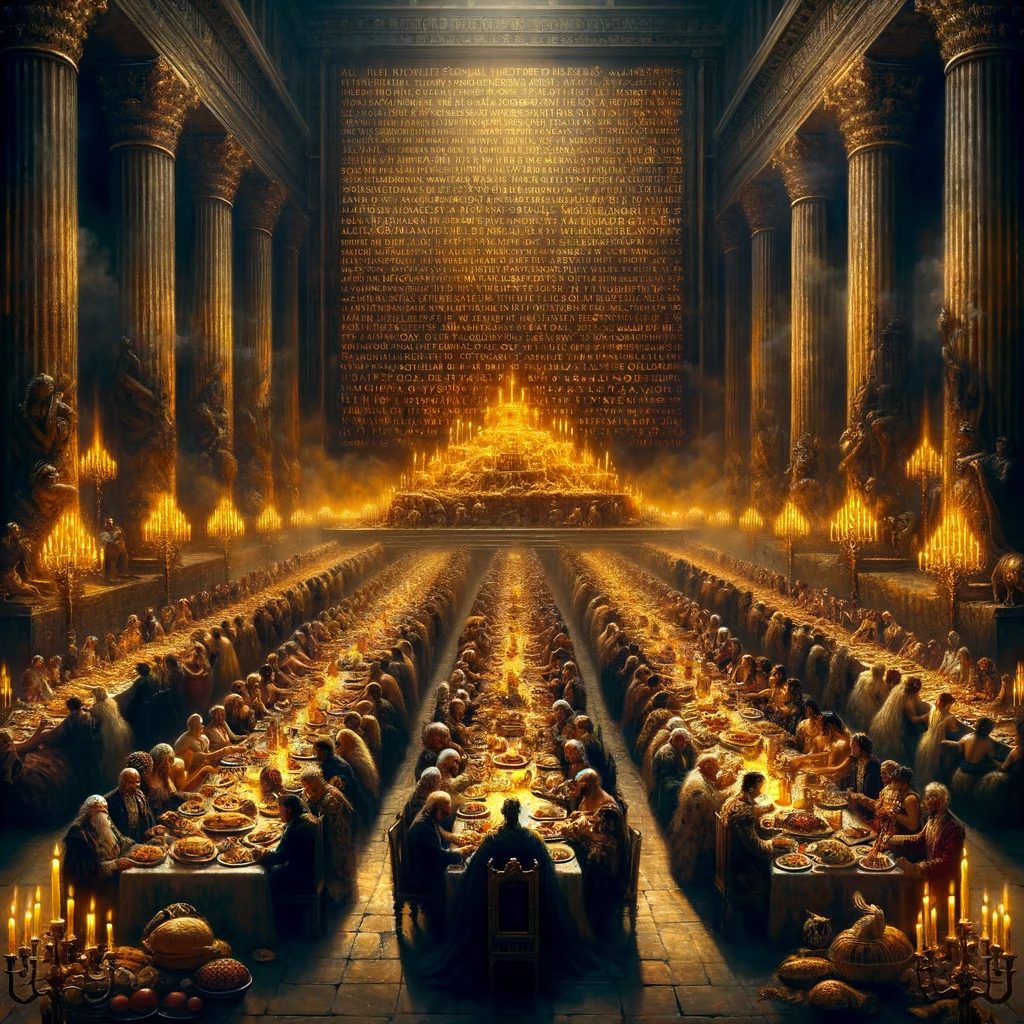
Chapter 6 – Daniel in the Lion’s Den: Daniel’s survival in the lion’s den after being targeted for his integrity is analogous to the endurance of systems that prioritize community welfare and equity over individual ambition, even when such systems face threats from established power structures.

Chapter 7-12 – Visions of Future Sovereignty: Daniel’s visions of future kingdoms and the coming of the “Ancient of Days” to establish an everlasting dominion can be interpreted in the context of Wealth Ecology as a prophecy of a new world order where wealth and resources are managed as a collective ecosystem, ensuring prosperity and justice for all.
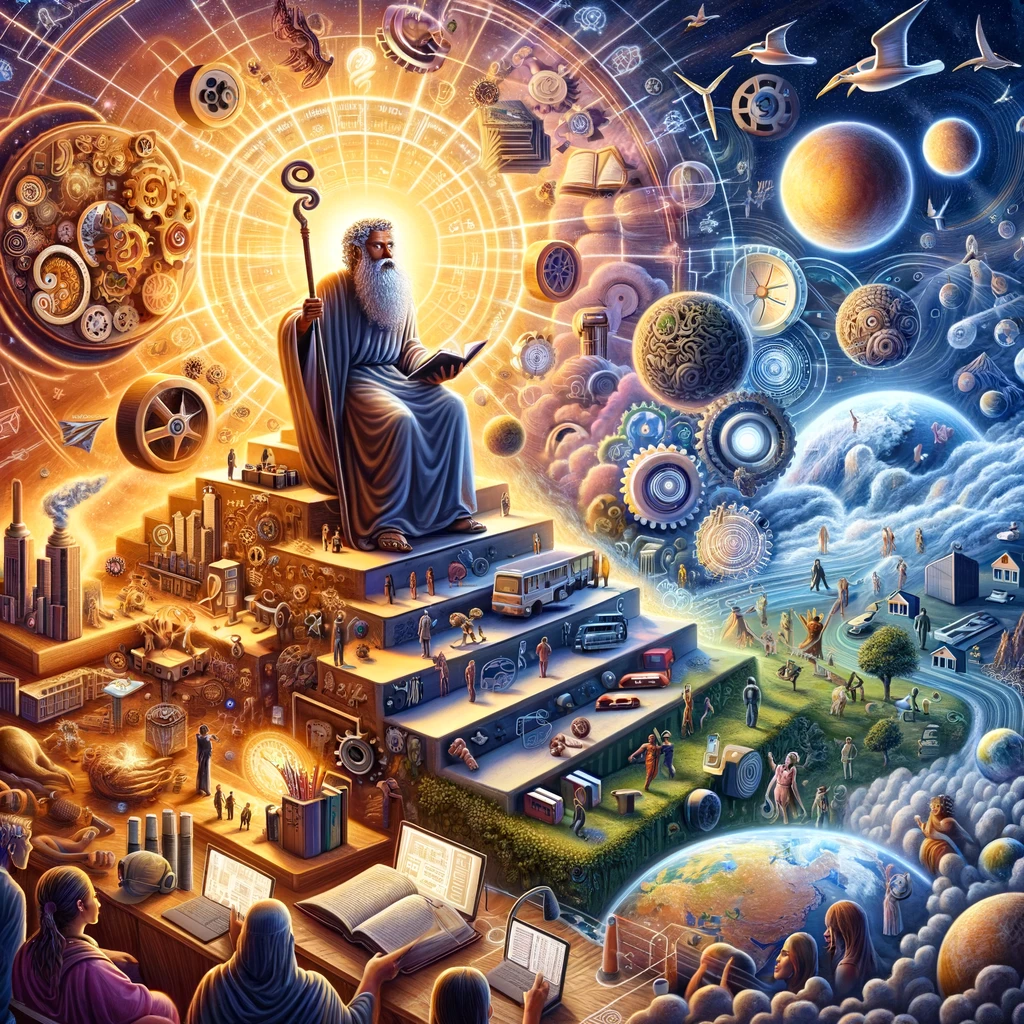
In this Wealth Ecology-centric interpretation, Daniel’s prophecies and experiences serve as a testament to the importance of building resilient, ethical, and communal systems that can withstand the pressures and changes of time, heralding a future where wealth is not hoarded but shared for the benefit of all within the ecosystem. This adaptation aligns with the Wealth Ecology Manifesto’s call for a new paradigm that harmonizes energy, technology, community, and education to reimagine wealth and its role in society.
